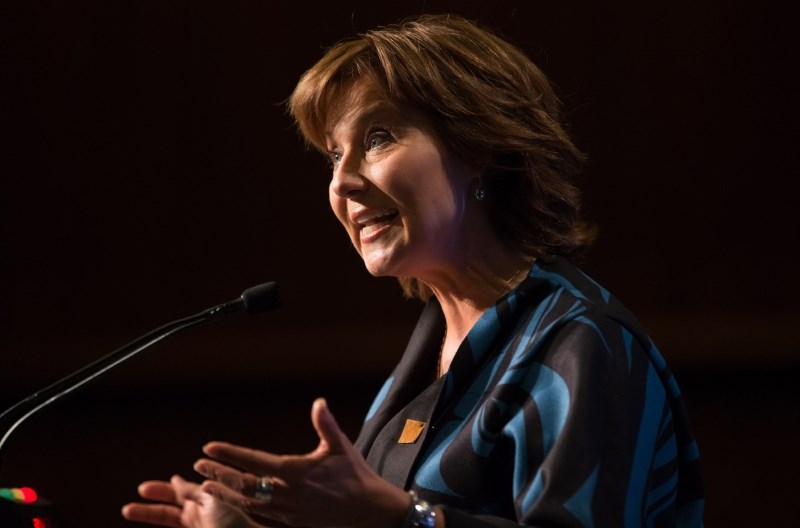BURNABY — A new tax on foreign buyers and a windfall budget surplus are funding more rental housing in B.C., Premier Christy Clark said Monday.
The province announced that $500 million will be used to create 2,900 rental units in partnership with non-profit groups, local governments, community agencies and the private sector.
“Now is the time, as home ownership gets more and more expensive, as the dream of even renting a home finds its way out of the reach of so many people, this is the time to make these investments so that we can support putting British Columbians first when it comes to housing,” she said.
Victoria Mayor Lisa Helps, co-chair of the Greater Victoria Coalition to End Homelessness, said she expects that some of the money will find its way into the capital region. “It’s encouraging to hear that all of the projects are going to be named by March 2017. So that’s a huge influx of cash for affordable housing,” Helps said.
The province has already committed $30 million to match the Capital Regional District’s $30 million toward the regional affordable housing strategy.
“I think we will see some in the region in addition to what’s been already contributed . . . in addition to that $30 million,” Helps said.
The province also has spent millions on subsidized housing in its effort to close down the tent city on the Victoria courthouse lawn. It purchased Central Care Home for $13.5 million on Johnson Street, Mount Edwards Court Care Home on Vancouver Street for $3.9 million and Super 8 hotel on Douglas Street for $6.5 million.
In August, the government implemented a 15 per cent tax on properties purchased by foreign buyers and that money will go towards the new rental stock, the premier said. The rest will come from the province’s larger-than-anticipated revenues. “We’ve got a large surplus this year so we’re able to afford to do this,” she said.
Last week, Finance Minister Mike de Jong announced that an extra billion dollars in real estate taxes and $1.3 billion in higher income taxes helped to boost revenue, providing some money to spend on housing.
The government said the cash infusion is the largest single housing investment in a single year by any province in Canada.
It will fund a mix of housing for low- to moderate-income earners, seniors, students, adults with developmental disabilities, aboriginals and single parents.
Housing Minister Rich Coleman said the projects will be approved by the end of March 2017.
The announcement is a significant step towards helping more people find an affordable place to live, Clark said.
“You can’t live the kind of life that you hope for in this country and you can’t raise your children in a way that you’ve always dreamed of if you don’t have a decent roof over your head. And our government is really committed to making that happen.”
But other levels of government need to take steps to address the provincial housing crunch, too, she said, adding that the federal government needs to make land available for affordable housing and create incentives for rental developers.
Clark said the federal government needs to do a better job of policing money laundering in the real estate sector, and her government is happy to share any information they legally can in order to make that happen.
Municipalities have the biggest job when it comes creating more rental housing, because they control zoning, she said.
“The province is really stepping up. We’re trying to do our part. We’re hoping the federal government does the same. But local mayors and councils have to be part of the solution because we can’t do the zoning for them,” Clark said.



